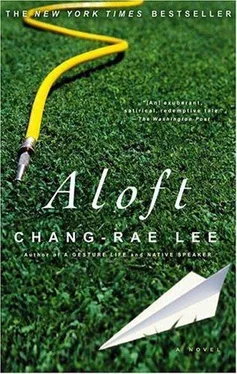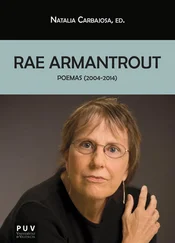There are, of course, a number of residents that you never see, who are housed in a special wing of the complex called
"Transitions" (though informally known as "The Morgue," as it is situated, in a somewhat unfortunate attempt at an expensive contemporary look, behind a massive pair of polished stainless steel sliding doors). This is the unit where the living isn't so much assisted as it is sustained, and while I've been invited multiple times of late by the executive administrator to take a tour of its specialized facilities and meet its staff I've not yet done so, the reason, I think, being not exactly denial of the coming reality but my feeling that I'd rather be cathartically jolted by shock and dismay and surprise by what Pop requires than have to ru-minate too much now on all the grim complications and possibilities. Maybe that's a sneaky form of denial, too, but it's what I can do.
Our dinners are brought to us and it's no stretch to say that Pop gravely misordered. The fish on our plates is an unnaturally rectangular fillet of meat, grayish and bluish and not nearly whitish enough, with veiny streaks of brown running through the engineered block. A glum slice of lemon is steamadhered on top. The fish has been poached in its own past-due juices, which are now infiltrating the green beans and mashed potatoes and the overfancy garnishes of carrot flowers and parsley. I can hardly stick my face over the plate, but Pop is digging right in, and nobody else at the table seems to notice, or cares if they do. I'll remind you that Ivy Acres is an upscale nursing facility, and it's amazing to think what they might be serving at some of the other homes I looked at, which were but half the price. What would it take to slap a decent piece of sirloin on the griddle and Iet it sear to medium-rare, and serve it the way Rita does with a pat of sweet herbed butter and maybe even a half glass of dry red wine? I've always thought that Ivy Acres spent too much dough on the glossy brochures and advertisements and then on landscaping the grounds, which I can say from my former professional point of view is clearly top-shelf, with the pea-stone pathways and English garden perennials and a high-end playground set for the visiting grandkids (who don't go outside but just sit in the dayroom watching whatever the residents are watching). In fact I've never seen any of the residents hanging out outside except when their families insist on "getting some air." Like everything else here the money is spent by management for the sake of us visitors, the same way pet food is designed to please the owners, to assure us in our wishful thinking that our folks are already, as it were, in a better place.
I used to joke to Rita about the idea of having assisted living centers for the perfectly able and independent, places where busy families and lazy empty-nesters and even single professionals could live in residence hotel — style accommodations and enjoy valet services and a modified American meal plan (no weekday lunch) and organized Club Med — type activities on the weekends. The notion isn't so far-fetched, if not already being developed, for it seems a lot of people of even historically modest means now demand a host of services simply to maintain a decent middle-class standard of living. They have their dry cleaning picked up and delivered and have bottled water contracts and lawn and pool service and the week's meals prepared and apportioned by a local caterer and delivered frozen in a tidy Styrofoam cooler every Friday night. The only real difference is that they still live in their own homes, but as any owner will tell you, the constant upkeep and maintenance (whether you're doing it yourself or paying someone else) can be a steady soul-wearying grind. I think a hell of a lot of our nation's people would give up some privacy and separateness (as they happily do on their vacations) in exchange for the ultimate luxuries of Ease and Convenience, which these days are everyone's favorites. I'd site my place in a semi-rural area with lots of covered parking and call it something like Concierge Farms, the hook being "Just bring your clothes."
Not that I would sign up myself, even if Rita were to agree to come back to me and were willing to live in such a place, which she never ever would. My hope for my years of degradation and demise is no different from any other guy's — namely, that I drop instantly dead at the Walt Whitman food court with Cinnabon in hand or in my (please, please, still conjugal) bed, and thus endure none of the despoiled lingering of contemporary death. And in this sense I very much feel for Pop, whose complaints about being here at Ivy Acres are fundamentally just surrogate grousings for what is addressable by only the greatest poets: the much bigger, hairier Here, which nobody but nobody can easily escape. never admit it, but whenever Pop talks about offing himself I'll dismiss him with a sigh or impa-tient guffaw but also silently whisper Go ahead, not with any righteous ease or malice but with what would be humble grace and mercy if I were in any position to bestow such lovely things. But I know, too, that my inward bleatings carry as much resolve as I might twenty or thirty years from now, when Jerry Battle's the one dangling the hair dryer above the surface of the bath water, which is to say none whatsoever, as I'd cry up the water level another inch before ever letting go.
I'm still prodding at my rigid tile of fish when I see that everyone else is mostly done. Pop is a world-class stuffer and always has been and it is actually a semi-pleasing sight now, to watch him pack in the gizzard. It's like every bite is a necessary breath, an angry little war against extinguishment. Daniel and Dennis are already onto the dessert of cling peach crumble, which from here looks like dirt-topped soup, with the other woman at the table, Sarah May, trying to fish out a slippery peach slice with her fingers. Daniel jabs it for her with a fork and hands it to her, like she's his baby sister. I see Bea, on the other hand, sort of scratching at her throat, and I immediately think of how peaches and pineapples have some chemical that makes me sound hoarse. I ask if she'd like a fresh glass of water, but she doesn't answer, still idly scratching away with a faraway look on her face, the face of maybe five hundred peaches ago, that time coming home from the Jersey shore when her father stopped the car at a farm stand and bought a half bushel and they ate them all the way up to New York, a pile of wet peach stones collecting on the floorboards. But of course that's my memory, with Pop insisting that he stop again for another half bushel so my mother could put up some preserves, but when we got home most of the new ones turned out to be mushy and wormy and Ma put them out for the neighborhood raccoons.
I'm sure Bea is having a similar recollection, because she's sort of grinning now and looking girlish and reaching out for Pop's hand, which he sweetly automatically takes, and I am noting to myself that I'll remind him of this the next time he starts in on a complaint about the grimness of this place when Bea stands up and without so much as a warning splash-retches her dinner on the table.
Pop lets go as he pushes back and cries, "What's the big idea, Bea?"
The others hardly move and I am looking for one of the staffers to clean up the mess that doesn't smell at all like vomit when I see that Bea has now fallen onto the floor. She's shaking, and her eyes have rolled up, and I realize she's been choking this whole time. Pop is already kneeling down beside her and he orders me to do something. I prop her up and try Heimlich-ing her a couple of times, to no use. A few staff people descend and practically throw me off and they try the same. But Bea is still down and now purple-faced, and though there's instantly a shouting crowd of medical people and staffers and curious residents pinching in upon poor Bea at the bottom, it's my father that I can hardly bear to see, for he is crying as I've never seen him cry before, not for Ma or Daisy or even for Bobby, with great shuddering gasps rippling the almost operatic costume of his billowy stained robe and polka-dot pajamas, and though I want to do something utterly basic like put a hand on his shoulder or nudge him or do anything else to bridge the widening gap, I really can't, not from any of the usual intimacy issues but because for once in my life, really for the very first time, I am scared for him.
Читать дальше











